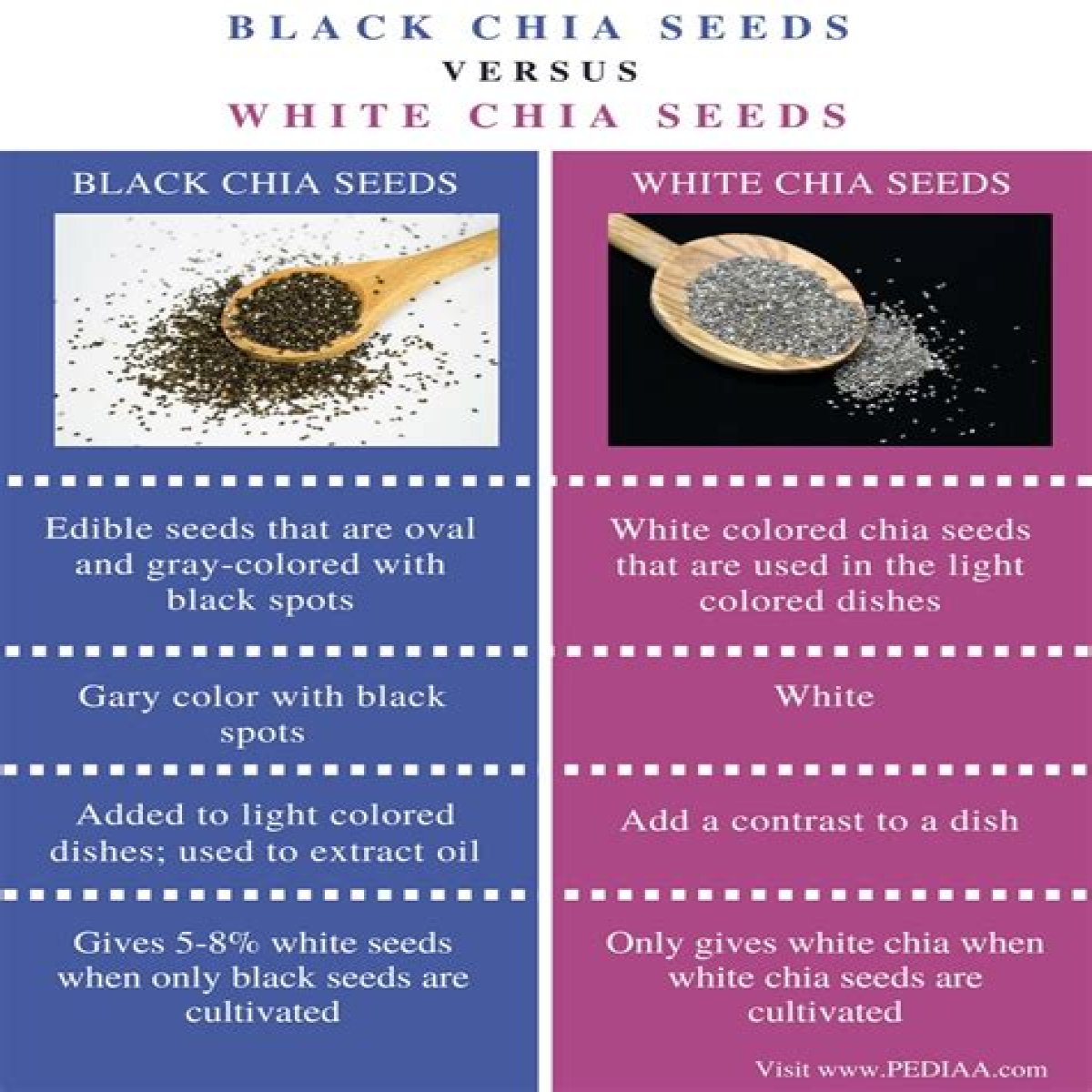Chia seeds have been gaining popularity despite being around for centuries. High in fiber, protein and essential fatty acids, black and white chia seeds are used worldwide as an ideal healthful snacks. While both varieties of chia seed are packed with nutritional benefits, they also have a few distinct differences.
Preparation In Black And White Chia Seeds
The preparation of chia seed is one of the biggest differences between black and white chia seeds. White chia seeds require no preparation. They are ready to eat and are most commonly used in salads and smoothies because they take on the flavor of whatever they are mixed with. On the other hand, black chia seeds require a significant amount of preparation before they can be consumed. They need to be soaked in hot water for several hours before they are ready to eat.
It is also important to note that black chia seeds will lose their nutrients if soacked for too long and will not be able to be used for recipes for best results. Therefore, it is important to monitor the preperation of black chia seeds closely for the best results.
The Outer Shell of Black And WhiteChia Seeds
Another difference between black and white chia seeds is the outer shell. Black chia seeds have a harder, outer shell while white chia seeds are softer and easier to chew. This allows white chia seeds to be used in a variety of recipes and allows the nutrients contained within them to be absorbed quickly into the body. Black chia seeds will take longer to digest because of their harder outer shell, making the benefits of their nutrients slower to be absorbed.
The harder outer shell of black chia seeds also allows them to be stored for longer without going bad. This means they are great to keep on hand for when you need them. White chia seeds, on the other hand, will not last as long and should be used as soon as possible for the best results.
Nutritional Value of Black And White Chia Seeds
The nutritional value of black and white chia seeds is also slightly different. White chia seeds are higher in fiber, protein, and essential fatty acids than black chia seeds. Black chia seeds are higher in antioxidants, which are essential for maintaining a healthy immune system and fighting off free radicals.
White chia seeds also contain more calcium, which has been linked to several health benefits, including healthy bones and teeth, increased metabolism, and improved circulation. Black chia seeds are higher in iron, which is essential for carrying oxygen to cells in the human body.
The Flavor Of Black And White Chia Seeds
The final difference between black and white chia seeds is the flavor. White chia seeds have a mild, almost grassy flavor and are often used in foods due to their neutral flavor. Black chia seeds have a much stronger flavor and are often used in teas or coffee due to their nutty, earthy flavor.
White chia seeds are often preferred for cooking due to their mild flavor and ability to take on other flavors in the dish. Black chia seeds, on the other hand, are great for adding depth and flavor to drinks and soups.
Cost of Black And White Chia Seeds
Last, but not least, the cost of black and white chia seeds is different. Black chia seeds are often more expensive due to the thorough cleaning process they require. White chia seeds are typically cheaper because they can be purchased directly from the producer with minimal preparation.
The best way to save on chia seeds is to purchase them in bulk. Bulk chia seeds will often come at a discounted rate and can be stored for months without going bad.
Conclusion
Overall, black and white chia seeds are both incredibly beneficial health foods packed with essential vitamins and minerals. Black chia seeds are higher in antioxidants and iron and require more preparation before eating. White chia seeds are higher in fiber, protein, and essential fatty acids, and have a mild flavor that is ideal for baking and cooking.
In the end, both black and white chia seeds have similar nutritional benefits and the decision of which one to use will depend on the type of recipe and individual preference. Both varieties of chia seed are a great way to include a host of vital nutrients into your diet.
